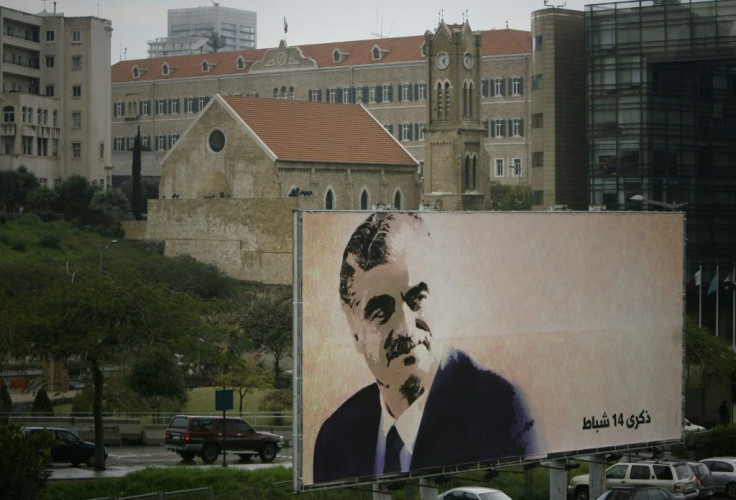Tribunal Set To Deliver Verdict In 2005 Hariri Murder Case
A UN-backed tribunal will hand down its verdict Tuesday on the 2005 murder of former premier Rafic Hariri, two weeks after the Lebanese capital was rocked by a massive explosion.
The Special Tribunal for Lebanon's long-awaited judgement comes days after a cataclysmic blast at Beirut port blamed on state negligence left at least 177 people dead and deepened public distrust toward the government.
Initially scheduled for August 7, the Dutch-based international court postponed its own verdict 15 years after Hariri's assassination "out of respect for the countless victims".
Four alleged members of the powerful Shiite Muslim group Hezbollah were on trial in absentia at the court in the Netherlands over the huge Beirut suicide bombing on 14 February 2005 that killed Sunni billionaire Hariri and 21 other people.
The judgment harks back to an event that changed the face of the Middle East, with Hariri's assassination triggering a wave of demonstrations that pushed Syrian forces out of Lebanon after 30 years.
The court is billed as the world's first international tribunal set up to probe terrorist crimes, and it has cost at least $600 million since it opened its doors in 2009 following a UN Security Council resolution.
But the tribunal faces doubts over its credibility with Hezbollah chief Hassan Nasrallah refusing to hand over the defendants, and the case relying almost entirely on mobile phone records.
Nasrallah last week warned the powerful movement would ignore the verdict by the court based in Leidschendam just outside The Hague, saying "we do not feel concerned by the STL's decisions."
Meanwhile the slain former prime minister's son Saad Hariri, himself a former premier, was expected in The Hague for the verdict, scheduled for 11.00 am (0900 GMT).
Due to the coronavirus pandemic, the judgment "will be delivered from the courtroom with partial virtual participation" the court said.
The four defendants went on trial in 2014 on charges including the "intentional homicide" of Hariri and 21 others, attempted homicide of 226 people wounded in the bombing, and conspiracy to commit a terrorist act.
Salim Ayyash, 56, is accused of leading the team that carried out the bombing, which involved a truck packed full of explosives that detonated near Hariri's motorcade.
Assad Sabra, 43, and Hussein Oneissi, 46, allegedly sent a fake video to the Al-Jazeera news channel claiming responsibility on behalf of a made-up group.

Hassan Habib Merhi, 54, is accused of general involvement in the plot.
The alleged mastermind of the bombing, Hezbollah commander Mustafa Badreddine, was indicted by the court but is believed to have been killed in the Damascus area in May 2016.
The surviving suspects face life imprisonment if convicted, although sentencing will be carried out at a later date.
If the four are convicted and not present, the court will issue arrest warrants, a court spokesman said.
Both the prosecution and defence can appeal the judgment and sentence, while if a defendant is eventually arrested he can request a retrial.
Prosecutors said during the trial that Hariri was assassinated because he was perceived to be a "severe threat" to Syrian control of the country.
Hariri was Lebanon's Sunni premier until his resignation in 2004 over Syria's role as power-broker in the country.
The case was "circumstantial" but "compelling", prosecutors said, resting on mobile phone records allegedly showing the suspects conducting intense surveillance of Hariri from just after his resignation until minutes before the blast.
Observers have voiced fears that the verdict, whichever way it goes, could spark violence on the streets in Lebanon when it is announced.
Since its inception "the court has been widely contested," said Karim Bitar, professor of international relations in Paris and Beirut.
"Some have questioned its legitimacy, some have questioned whether this justice would not be selective," he said.
Tuesday's verdict comes as thousands of Beirut's residents have expressed anger at the authorities after the blast, triggered by a warehouse fire that set off large amounts of stored ammonium nitrate.
The disaster led to the Lebanese government's resignation and compounded Lebanon's severe economic crisis.
© Copyright AFP 2024. All rights reserved.





















